To many, the idea of studying abroad in a foreign country can be a daunting and terrifying thought, to others it might be seen as one of their greatest adventures. In my case, it was one of the best decisions I’ve ever made, even if it wasn’t all rainbows and butterflies the entire time.
It might be scary at first, but it’ll be worth it in the end. Here I’ll provide some tips and ideas that helped me make my year in Japan worthwhile. Even if you’re not doing exchange and just thinking about going to university full time in a foreign country, the following tips might be helpful.
1. Choose a university where you know people
Most people, though not all, usually choose a country related to their field of study, or somewhere they’ve been interested in for a while. In university you’re usually drawn to people from those areas that you’re interested in. This makes moving to a different country a lot easier if you have friends. My home university is very international, with students from all over the world coming to study. It’s also a very big university and allows a large number of exchange students to come each year. This created a great opportunity for me to make a lot of Japanese friends, and as my major was Japanese, I took an interest in finding people who I could practice my new language skills with.
That being said, when I chose my exchange university, I chose the school where I knew the most amount of people. Granted it was only 4 people, one of them being my ex-boyfriend, it was still a great gateway into meeting new people and making friends. One of my friends introduced me to a girl who I would become great friends with as the year went on, all of it starting from her helping this poor stranger from the airport to the dorm.
Both of them being residence advisors at the dorm also really helped the process of making friends faster as I frequently got invited to all the parties happening. Having people you know your exchange university is also a great because if you’re ever in trouble or need help, they are there for you – especially in Japan, or some country where they don’t speak your native language. I had a few problems in my first few months of exchange, whether it was issues with my bank or trying to get a phone, and having my friends there to help me and go with me to translate conversations was a life-saver.
If you’re a ball of stress and anxiety like I am, I would definitely recommend going somewhere where you know people.
2. Making friends
If you don’t have any friends at the university you’re wanting to go to, don’t worry, there are tons of other ways to make friends. Usually exchange universities will have all the exchange students do group activities together for the first week of them arriving. This is a great way to make your initial friends, even if you’re one of those people determined only to make friends only with those who don’t speak English so you aren’t tempted to do so. These exchange students are probably just as nervous and anxious about everything as you are and it’s always good to have people who you can relate to. I met some of my best friends on the first day of exchange while we were all doing something as boring as getting our residence cards. One of the girls started talking to me and we got really close after that.
Of course, there are other ways of making friends, especially if you’re interested in meeting people from Japan. In this case, I’d say the best way is to join a club. While I was at Hitotsubashi, I joined the badminton team. Not only did I get a chance to use Japanese, I was also able to make friends and go on trips with them to places I probably wouldn’t have gone to normally. It was a really fun experience, and the people were really nice – though a few of them were too afraid to talk to me, which made it seem like they didn’t like me (don’t feel discouraged by that though!).
Another way of making friends is in class. I met a lot of great people in my classes, whether they were exchange students like me, international students, or regular students. Classes in Japan tend to be smaller, so it makes it easier to get to know people. At UBC, most classes are huge lectures with over 100 people, which makes it incredibly difficult to make friends. The change in class size was a huge relief to me.
Finally, go to parties at the dorm. If you’re living in a dorm, there is bound to be parties (in my case almost every weekend). Go out and enjoy the night with fellow students, even if drinking isn’t your thing. It’s a great way to meet people; I became friends with the most people through parties, even when I wasn’t drinking and just socialising.
3. Choosing where to stay
I find this is a question people usually have when they go on exchange to Japan. Usually there are two options: homestay or dorm. I will go through the positive and negatives of each in the hope it will help you choose what’s best for you.
Homestay:
Homestay can be a good experience for those who really want to experience a Japanese lifestyle while in Japan. If you’re someone who lives with your family, or is worried about feeling homesick while on exchange, homestay might be the nicer option for you. You would be able to receive home-cooked meals, have people to talk to, and essentially have a second family. It also gives you a great opportunity to study and learn the language, which is the number one reason people choose homestay.
On the other side, I’ve heard a lot of bad things about homestay, mostly horror stories of people getting bad host families, or not being able to use Japanese like they hoped. Living in a homestay also imposes a lot of restrictions on your lifestyle. Most homestay families have a curfew and have restrictions on people staying over. I hadn’t lived with my family for over two years due to university, and the thought of going back to a restrictive lifestyle wasn’t such an appealing option. Of course, this all depends on your host family, but you won’t find out how they are until you’re living with them. You also don’t have easy access to friends if you live far away from them, and have less of a chance meeting new people and making friends if you aren’t in an environment that constantly has you meeting other people.
Dorms:
Dorms are something you have to be careful about while staying in Japan. A lot of them have curfews, or strict rules about people staying over or visiting. It’s very important that you do your research on the dorms available to you for different schools when you’re applying. Half the reason I chose Hitotsubashi was because I knew the dorms were very relaxed, and when I compared it to Waseda and Keio, I found that both had strict rules on visitors and curfew.
Personally, I didn’t want to have those kinds of restrictions put on me while I was on my fun exchange year. While school was, of course important, I also wanted to have fun and really enjoy my time in Japan. Plus, I had been living on my own for two years with all the freedom in the world, so it was a bit of a downgrade having a curfew.
If your dorms are anything like Hitotsubashi’s, there will be a lot of fun parties organised either by the residence advisors, or by students ready to relieve some stress. Living in the dorm is part of the reason why I was able to enjoy my time in Japan so much. All the events organised and the accessibility to my friends was great.
4. How long to stay
When I was thinking about going on exchange and was talking with my friends who had already been, the one thing all of them said was to go for as long as you can. This is also my advice to you. Often students get the choice of doing 6 months or a year on exchange. Every single person I’ve talked to that only did six months always said they regretted not staying longer and that they wish they did a full year.
Here’s the thing: It takes about one term to finally get used to living in a foreign place and adapt to the new lifestyle. After six months you know where all your favourite hangouts are, you’ve made a lot of friends you have got close to, and maybe even a boyfriend/girlfriend. Having to leave after finally feeling comfortable is probably a lot more painful than leaving after a year. It definitely took me at least six months to fully enjoy my time abroad. I finally felt comfortable, I knew how to get around in Japan without getting lost on the trains, and a lot of my friends were staying for a full year which meant I could be with them longer. I really began to feel at home and am really glad I got to enjoy another six months in that relaxed state.
If it’s the case that you can only do six months, my best suggestion is make the most of the time you have there. Even after living in Japan for a year, I still felt like I missed out on a lot of opportunities.
5. Finally, step out of your comfort zone
If you’re like me and are super shy and not very outgoing, then take note of this tip. I always found it really hard to meet new people because I’m very awkward at meeting people for the first time. This usually results in me just not saying anything and standing awkwardly alone until someone comes up to me. However, during my exchange I forced myself out of my comfort zone and tried talking to new people. Eventually I got so used to it that meeting new people doesn’t make me feel uncomfortable anymore. This is especially important if you’re going to a place where you don’t know anyone. Take a risk and put yourself out there.
Stepping out of your comfort zone is also important when it comes to trying new things, whether it be an activity or eating something new. If you don’t step out of your comfort zone, you really hold yourself back from endless possibilities of what you can do, and all the experiences you’d be missing out on. I would never have discovered the amazing taste of certain Japanese food if I hadn’t stepped out of my bubble.
Your year on exchange is a time for you to start over, turn over a new leaf, and in order to do that you need to step out of your comfort zone to fully enjoy everything the country has to offer.
University life in Japan might be a big change for you, especially if you’re coming from a country with a very different lifestyle, but it may be one of the best decisions you ever make. I was able to not only make tons of friends from all over the world, but I was also able to grow as a person and learn new things about me because I was forced to step out of my comfort zone. It was truly a great experience and I would do it again ten times out of ten. It’s not always going to go your way at first, but once you get over that first hurtle of trying to adjust to the new life, you will be able to get one of the greatest adventures out of it.
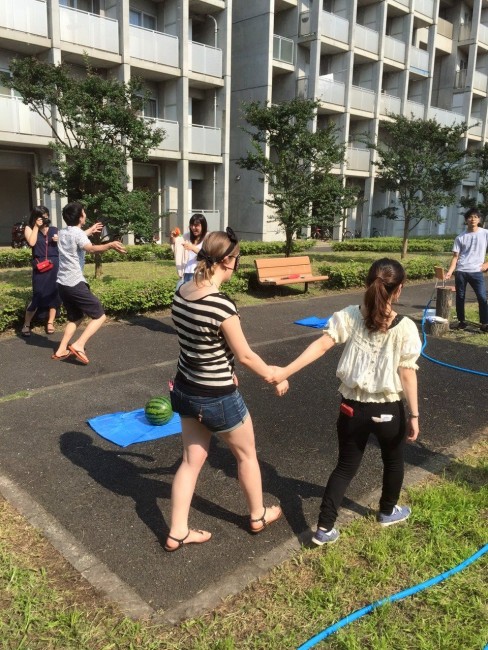
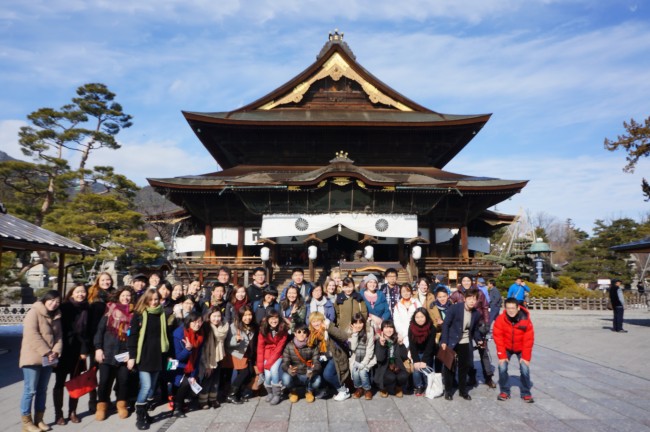
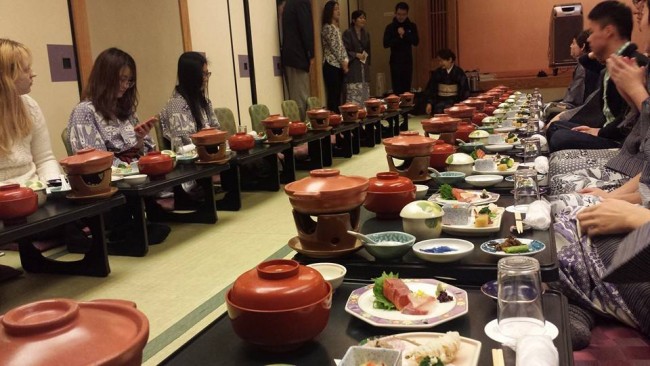

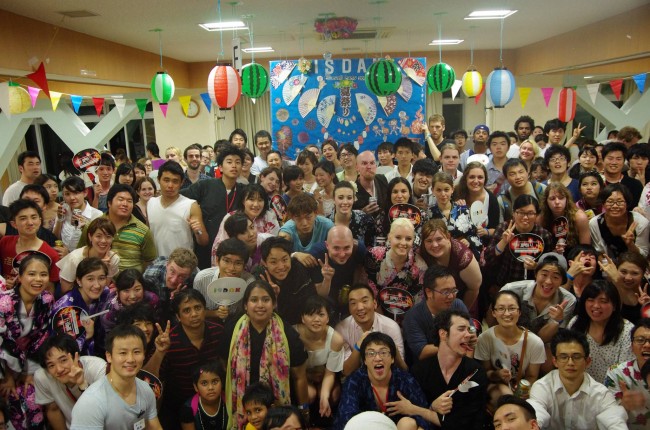






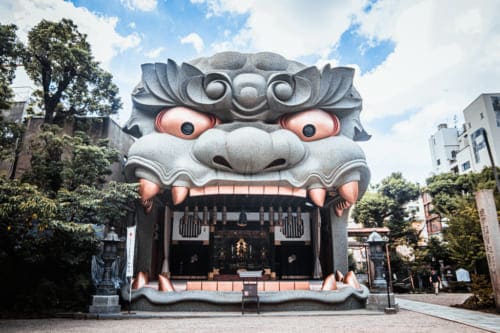





No Comments yet!